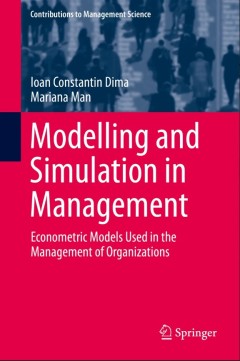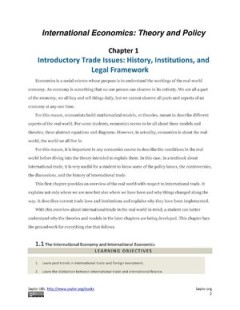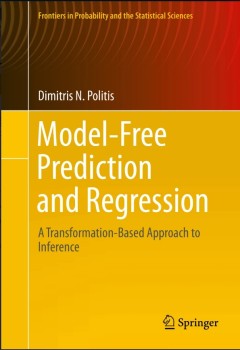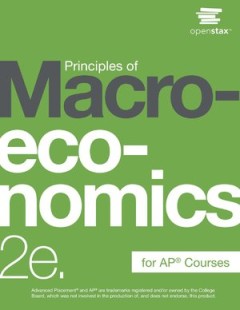Filter by

Modelling in Life Insurance – A Management Perspective
Focusing on life insurance and pensions, this book addresses various aspects of modelling in modern insurance: insurance liabilities; asset-liability management; securitization, hedging, and investment strategies. With contributions from internationally renowned academics in actuarial science, finance, and management science and key people in major life insurance and reinsurance companies, ther…
- Edition
- 1
- ISBN/ISSN
- 978-3-319-29774-3
- Collation
- XVI, 255
- Series Title
- EAA Series
- Call Number
- -

Modelling and Simulation in Management:Econometric Models Used in the Managem…
This book is a comprehensive introduction of the reader into the simulation and modelling techniques and their application in the management of organisations. The book is rooted in the thorough understanding of systems theory applied to organisations and focuses on how this theory can apply to econometric models used in the management of organisations. The econometric models in this book employ…
- Edition
- 1
- ISBN/ISSN
- 978-3-319-16591-2
- Collation
- XXII, 523
- Series Title
- Contributions to Management Science
- Call Number
- -

International Economics : Theory and Policy
This text strives to reach a median between these two approaches. First, I believe that students need to learn the theory and models to understand how economists understand the world. I also think these ideas are accessible to most students if they are explained thoroughly. This text presents numerous models in some detail, not by employing advanced mathematics, but rather by walking students t…
- Edition
- -
- ISBN/ISSN
- -
- Collation
- -
- Series Title
- -
- Call Number
- 650

Model-Free Prediction and Regression
The Model-Free Prediction Principle expounded upon in this monograph is based on the simple notion of transforming a complex dataset to one that is easier to work with, e.g., i.i.d. or Gaussian. As such, it restores the emphasis on observable quantities, i.e., current and future data, as opposed to unobservable model parameters and estimates thereof, and yields optimal predictors in diverse set…
- Edition
- 1
- ISBN/ISSN
- 978-3-319-21346-0
- Collation
- XVII, 246
- Series Title
- Frontiers in Probability and the Statistical Sciences
- Call Number
- -

Electronic Commerce A Managerial and Social Networks Perspective
Throughout the book, theoretical foundations necessary for understanding Electronic Commerce (EC) are presented, ranging from consumer behavior to the economic theory of competition. Furthermore, this book presents the most current topics relating to EC as described by a diversified team of experts in a variety of fields, including a senior vice president of an e-commerce-related company. The a…
- Edition
- 1
- ISBN/ISSN
- 978-3-319-10091-3
- Collation
- 12 b/w illustrations, 100 illustrations in colour
- Series Title
- -
- Call Number
- -

Principles of Microeconomics
Recognizing that a course in economics may seem daunting to some students, we have tried to make the writing clear and engaging. Clarity comes in part from the intuitive presentation style, but we have also integrated a number of pedagogical features that we believe make learning economic concepts and principles easier and more fun. These features are very student-focused. The chapters themselv…
- Edition
- -
- ISBN/ISSN
- -
- Collation
- -
- Series Title
- -
- Call Number
- 650

Principles of Management
Principles of Management teaches management principles to tomorrow’s business leaders by weaving three threads through every chapter: strategy, entrepreneurship and active leadership. Strategic— All business school teachings have some orientation toward performance and strategy and are concerned with making choices that lead to high performance. Principles of Management will frame performan…
- Edition
- -
- ISBN/ISSN
- -
- Collation
- -
- Series Title
- -
- Call Number
- 650

Principles of Management : OpenStax
Principles of Management is designed to meet the scope and sequence requirements of the introductory course on management. This is a traditional approach to management using the leading, planning, organizing, and controlling approach. Management is a broad business discipline, and the Principles of Management course covers many management areas such as human resource management and strategic ma…
- Edition
- -
- ISBN/ISSN
- -
- Collation
- -
- Series Title
- -
- Call Number
- 650

Principles of Macroeconomics for AP Courses
Principles of Macroeconomics for AP® Courses 2e covers the scope and sequence requirements for an Advanced Placement® macroeconomics course and is listed on the College Board’s AP® example textbook list. The second edition includes many current examples and recent data from FRED (Federal Reserve Economic Data), which are presented in a politically equitable way. The outcome is a balanced a…
- Edition
- -
- ISBN/ISSN
- -
- Collation
- -
- Series Title
- -
- Call Number
- 650

Project Management
This book covers the basics of project management. This includes the process of initiation, planning, execution, control and close out that all projects share. This book has been adapted by the author as of August 15, 2014. The adaptation includes Canadianized content, PowerPoints, Audio Files and Chapter Questions.
- Edition
- -
- ISBN/ISSN
- -
- Collation
- -
- Series Title
- -
- Call Number
- 650
 Computer Science, Information & General Works
Computer Science, Information & General Works  Philosophy & Psychology
Philosophy & Psychology  Religion
Religion  Social Sciences
Social Sciences  Language
Language  Pure Science
Pure Science  Applied Sciences
Applied Sciences  Art & Recreation
Art & Recreation  Literature
Literature  History & Geography
History & Geography